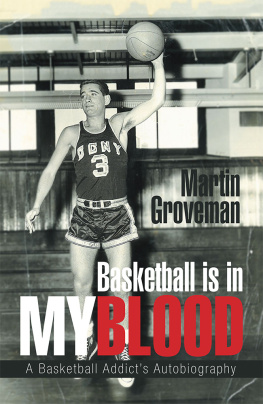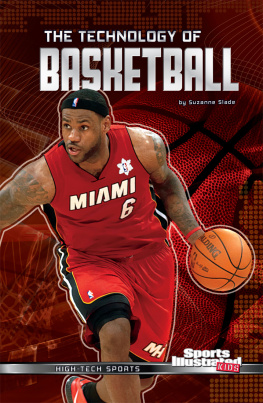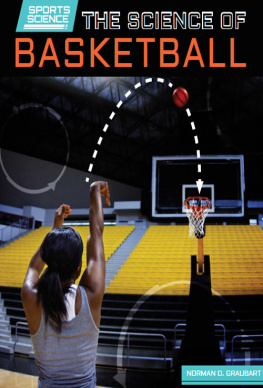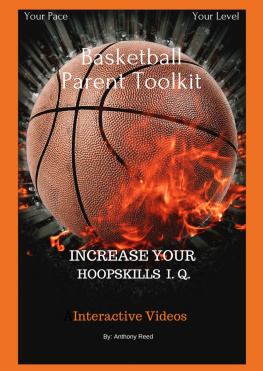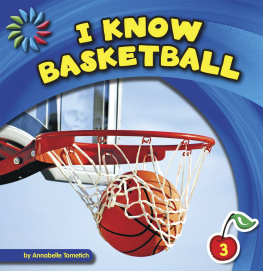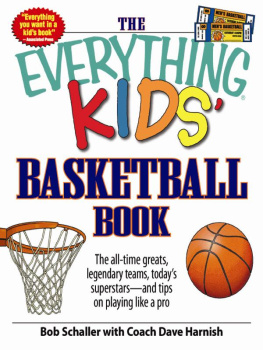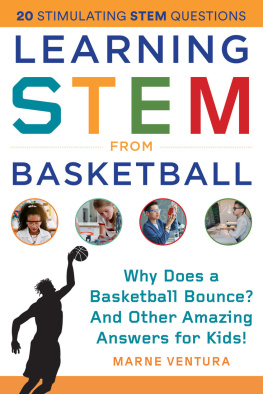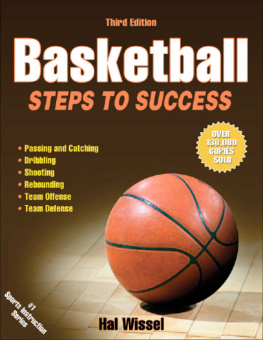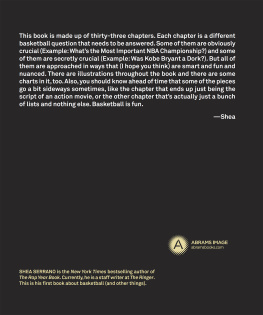Basketball is
in My Blood
A Basketball Addicts Autobiography

Martin Groveman
Copyright 2017 by Martin Groveman.
Library of Congress Control Number: 2017918427
ISBN: Hardcover 978-1-5434-7006-2
Softcover 978-1-5434-7005-5
eBook 978-1-5434-7004-8
All rights reserved. No part of this book may be reproduced or transmitted in any form or by any means, electronic or mechanical, including photocopying, recording, or by any information storage and retrieval system, without permission in writing from the copyright owner.
Any people depicted in stock imagery provided by Thinkstock are models, and such images are being used for illustrative purposes only.
Certain stock imagery Thinkstock.
Rev. date: 01/10/2019
Xlibris
1-888-795-4274
www.Xlibris.com
766495
Contents
Chapter 7 Marriage, a Few Career Decisions, and
Parenthood
T HIS BOOK IS dedicated to two groups of very special people. The first are those who were so instrumental in the attainment of my basketball dreams and accomplishments. Their contributions were both instructional and inspirational. Included in this select category are Venty Leib, Les Yellin, Abe Kleinman, Nat Holman, Dave Polansky, and Syd Levy. My mother and brother are among the honorees as their sacrifices and encouragement provided me with the opportunity to realize my goals. Lastly, my terrific sons, Jon and Seth, richly deserve inclusion. They have always proudly cheered me on even when believing it was time for me to hang up my sneakers.
The second group are teammates, friends, and acquaintances with a love for basketball that have kept my round ball fires burning. Ive arrived at the following names through a ninety-second free association. With apologies to so many others who deserve mention, these are the guys that flashed into consciousness:
Don Red Goldstein
Irwin Red Blumenreich
George Bruns
Alan Seiden
Herb Wein
Norm Nebel
Jack Langbart
Jerry Fleishman
Sid Tanenbaum
Jerry Domershick
Norm Feeny Fields
Jerry Stuckelman
Joel Tendler
Lenny Sherman
Jerry Houston
Benny Bessan
Lou Roethel
Larry Kaufer
Gary Wood
Solly Walker
Mel Davis
Lou Carnesecca
Hy Gotkin
Dave Gotkin
Ivan Kovac
Gus Alfieri
Tony Jackson
Herb Turetsky
Stacey Arcenaux
John Pitts
Steve Nisenson
Mark Reiner
Mark Rich
Bob Sack
Jim Signorili
Tim Cluess
Steve Scheinblum
Jack Ryan
Troy Murphy
Archie Sinuk
Danny Culley
Hank Whitney
Al Schreiber
Nick Gaetani
Peter Ruh
Hank Lam
Julie Levine
Joe Benardo
Bob Silver
Jerry Jackson
Bill Schaefer
Walt Szczerbiak
Wally Szczerbiak
Floyd Layne
Ed Roman
Cal Ramsey
Carl Green
Eddie Gard
Marv Kessler
Mel Kessler
Charlie Hoffman
CHAPTER 1
Basketball Beginnings
I M CLOSER TO eighty than seventy, and basketball is still in my blood. I have had two major reconstructive surgeries, one to each knee, both after age fifty, primarily caused by jumping, pounding, and cutting on too many surfaces of hundreds of gyms, parks, and schoolyards. And basketball is still not out of my system. Shooting around, playing horse, and dribbling up and down the court as my primary form of cardio exercise are all part of my regular activities.
When and how did this addiction begin? I think back, trying to pinpoint its inception, and can now more clearly than ever tie it to one mans arrival at my kindergarten through eighth grade elementary school. The school was PS 233 located in the East Flatbush section of Brooklyn. The man who had this profound influence upon my life was Aaron Venty Lieb.
I have no idea why he was called Venty, but everyone who knew him used the nickname. He was a teacher who transferred from Abraham Lincoln High School to PS 233 in 1949 when I was a seventh grader. He was bigger than lifeathletic, articulate, and humorous. To me and my schoolmates, he defined the term charismatic (even though this was not a word in our vocabulary). For many years, he was one of the premier high school basketball coaches in New York City. His Lincoln teams had won city championships and made playoffs just about all the time. It was indeed a mystery as to why he would leave such a prestigious position, having accomplished so much in a distinguished career, to teach in a community school.
Speculation has always been that he left under some high-school-related political cloud which forced him out, but none of us ever really learned the actual story. More importantly, it didnt matter because Venty became our coach and also our hero.
Prior to Ventys coming on the scene, baseball and its derivationssoftball, stickball, punchballwere our main athletic involvements. We played some basketball, but measured in interest, time, or intensity, it was far down the list of favorite sports. Baseball was the glamour activity, especially when we progressed to the point of forming teams, entering leagues, and of course, wearing uniforms. Within the neighborhood, we played at Mosquito Field, a barren lot ladened with every insect and vermin known to the northeastern USA and the Linden Boulevard trolley car barn, which was a dirt field on the grounds of the Church Avenue Trolley Depot. Later on, when the trolley became extinct, the field was paved over to make room for the more modern buses. Our league games were held at the famed Parade Grounds and Marine Park. Much to our credit, even at ages twelve and thirteen, we organized and coached the teams with minimal adult assistance or interference.
I cant speak for all my friends, but my conversion to the religion of basketball, inspired by Venty Lieb, was swift. Venty made it clear from the start that although not every boy at PS 233 would make the basketball team, all who were interested would develop the basic skills and learn how to play. Basketball instantly became a major focus in our gym classes and was a feature in the schools intramural athletic program. Venty did more than coach basketball. He taught itand with such a fervor. He stressed that it was essential to master the layup before we could ever think about playing a game. I remember so vividly the layup drills and extraordinary patience he demonstrated in teaching us how to go up on the correct foot. He taped a square above each basket to serve as a visual guide for us to utilize when shooting off the backboard. In whispered tones, he stated that the ball was like an egg that must be shot softly lest the egg would break (and the shot missed). We practiced dribbling in lines and contests and threw chest passes, pitchouts, and bounce passes until we were arm weary. Through it all, he joked, charmed, and mockingly threatened to do bodily harm to those who screwed up. He would playfully grab the offender by the T-shirt, pulling and shaking like a malt machine. I loved every moment of it. I couldnt wait for school practice and followed up by playing in the schoolyard, often after dark.
I cannot imagine the potential depths of my depression had I not made the PS 233 basketball team. Not that I ever felt that I was in danger of being cut. I sensed that Venty liked me, probably more as a wide-eyed, spunky left-handed kid than a real player. He told me that I was a student of the game, an expression that I had never before heard and most likely translated to my displaying enthusiasm and good listening skills, balanced against a lack of height, average speed, and no discernible talent. At age thirteen, I was four feet, eleven inches tall, skinny as a rail, and barely strong enough to reach the basket from the foul line. The betting odds, at that time, would have been prohibitively in favor of my growing up to be a short frail adult. Although by no means a physical specimen, the long shot paid off as I grew to about six feet and 165 pounds by the time I was nineteen. Unfortunately, my weight has steadily increased by five-pound increments every ten years of my adulthood. Eating had become an addiction somewhat below yet close to basketball.
Next page
